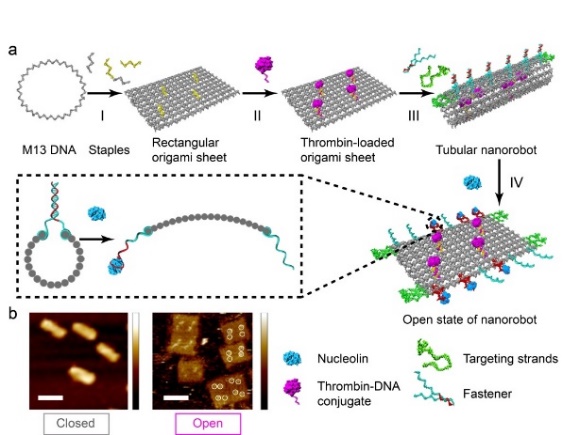Nanoscale robots have potential as intelligent drug delivery systems that respond to molecular triggers. Using DNA origami we constructed an autonomous DNA robot programmed to transport payloads and present them specifically in tumors. Our nanorobot is functionalized on the outside with a DNA aptamer that binds nucleolin, a protein specifically expressed on tumor-associated endothelial cells, and the blood coagulation protease thrombin within its inner cavity. The nucleolin-targeting aptamer serves both as a targeting domain and as a molecular trigger for the mechanical opening of the DNA nanorobot. The thrombin inside is thus exposed and activates coagulation at the tumor site. Using tumor-bearing mouse models, we demonstrate that intravenously injected DNA nanorobots deliver thrombin specifically to tumor-associated blood vessels and induce intravascular thrombosis, resulting in tumor necrosis and inhibition of tumor growth. The nanorobot proved safe and immunologically inert in mice and Bama miniature pigs. Our data show that DNA nanorobots represent a promising strategy for precise drug delivery in cancer therapy.
Nature Biotechnology volume36, pages258–264 (2018)


